Will Gompertz reviews Chernobyl starring Emily Watson & Jared Harris on Sky Atlantic ★★★★★
- Published
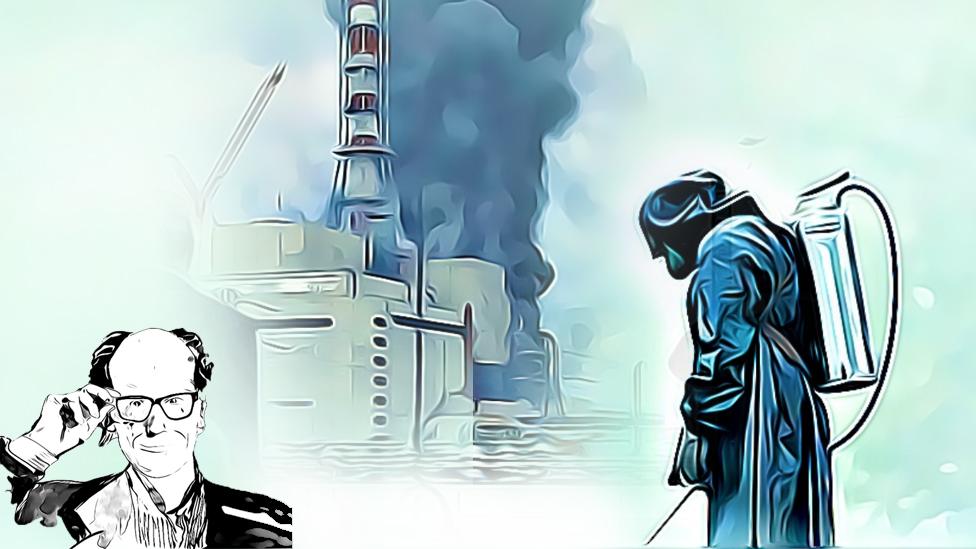
To say Sky/HBO's new mini-series Chernobyl is thought-provoking would be like describing Usain Bolt as quite a fast runner, or the water under the Antarctic sea ice as a bit chilly.
This is TV that doesn't just get you thinking, it stops you sleeping.
The catastrophic disaster that began with an explosion at around 01:15 at the Chernobyl Nuclear Power Plant in Soviet Ukraine on 26 April 1986, is graphically played out over the course of five one-hour episodes.
By the end of the third episode I was craving something a little lighter: re-watching the Towering Inferno maybe or a double helping of Luther.
Anything actually, that wasn't real.
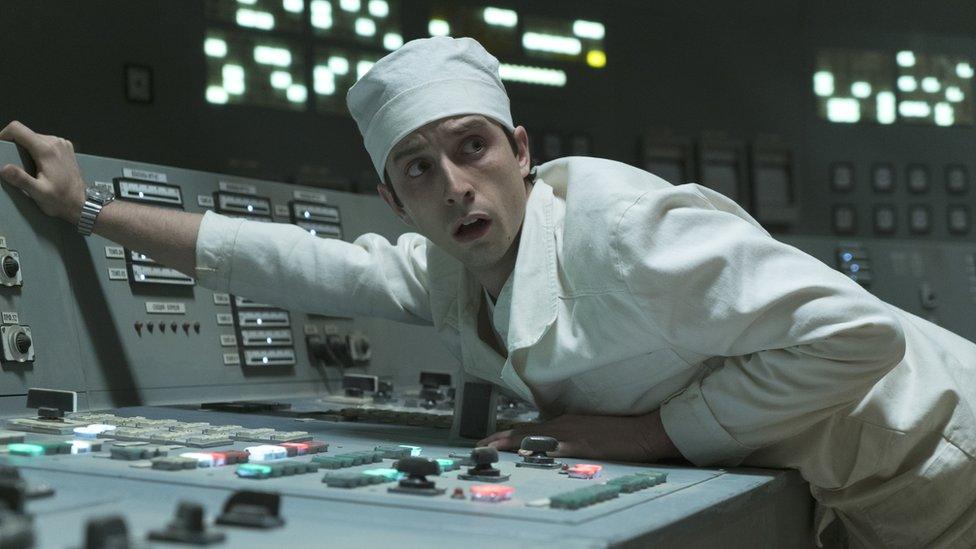
Joshua Leese as Igor Kirschenbaum in Chernobyl
Because when the reality of the dangers that lurk in our nuclear age are played back in such forensic, chilling detail as they are here it is just too frightening to bear.
If the rumour is true that governments around the world played down the horror of what happened that night in the new town of Pripyat (now abandoned) in order to safeguard their own nuclear power plans, then this series makes you understand why.
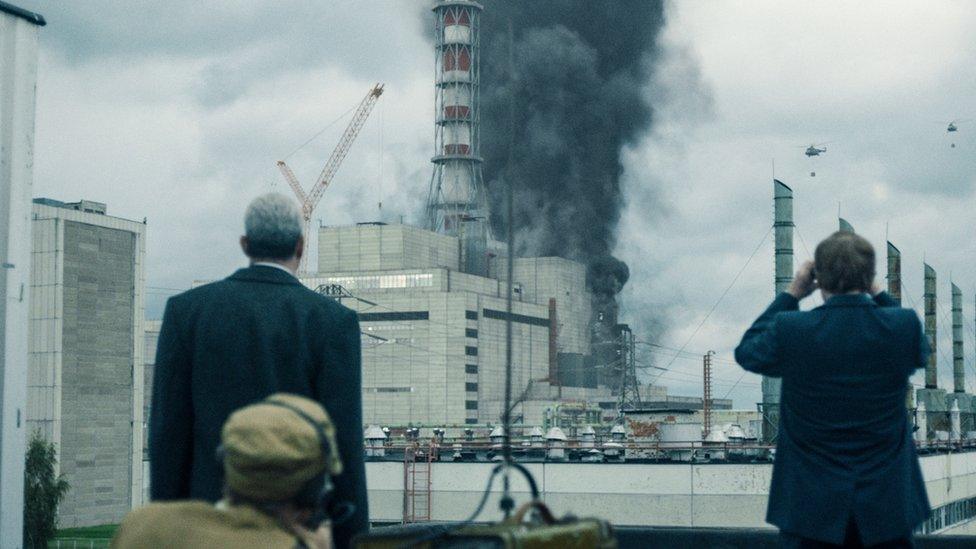
At least 31 people were killed and many more were injured in what was the world's worst nuclear power accident
The action starts two years after the event in the small, tatty apartment of physicist Valery Legasov (Jared Harris).
It is 01:10.
The man who led the commission investigating the accident is sitting at his kitchen table in front of a microphone and cassette player listening back to a recording he has made detailing everything he knows about what happened before, during and after that cataclysmic night when Chernobyl's No 4 reactor exploded following a safety test.

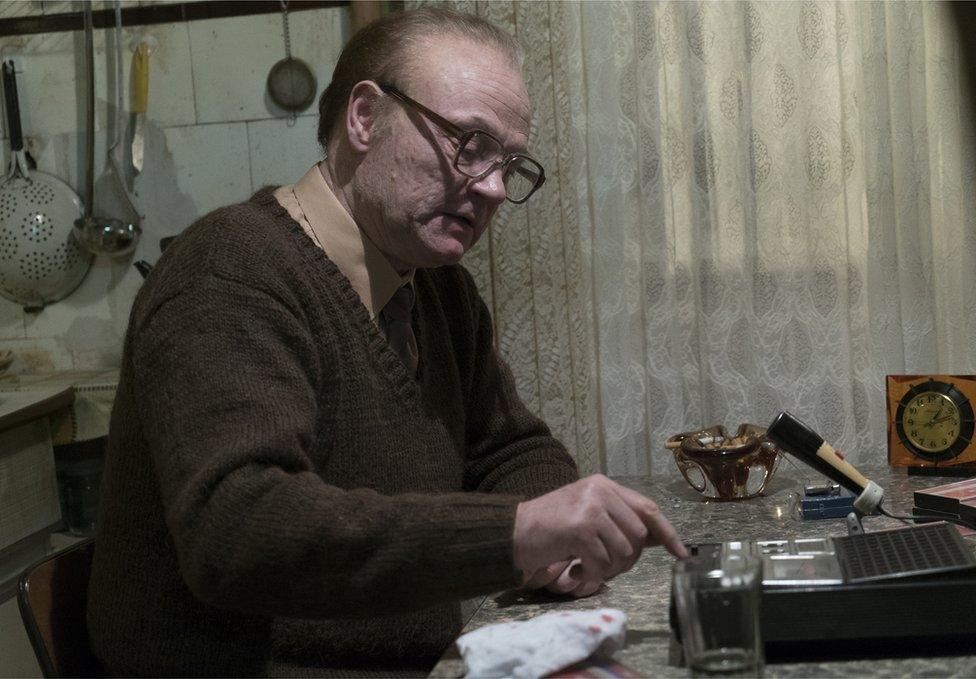
Valery Legasov (Jared Harris) headed the commission that investigated the Chernobyl nuclear power accident

The mood is sombre and eerie.
You can sense the menacing threat from the KGB officers watching silently in a car across the street.
This is a world in which people have forgotten how to smile.
It's bleak.
And then it gets much worse…
We spool back 24 months and one hour to another modest apartment, this time in Pripyat. A young woman (Jessie Buckley) is walking back to bed having been sick.
She looks lovingly at her sleeping husband (Adam Nagaitis). He is oblivious. She walks towards the window. And then stops in her tracks when a huge bang shakes the building. It's enough to wake up her fella.
He jumps out of bed, walks to the window and sees a spire of phosphorescent light and flames rising from the centre of the concrete building. He turns to his wife, tells her there's nothing to worry about, puts on his firefighter's kit and leaves to join the rest of his crew at the scene.
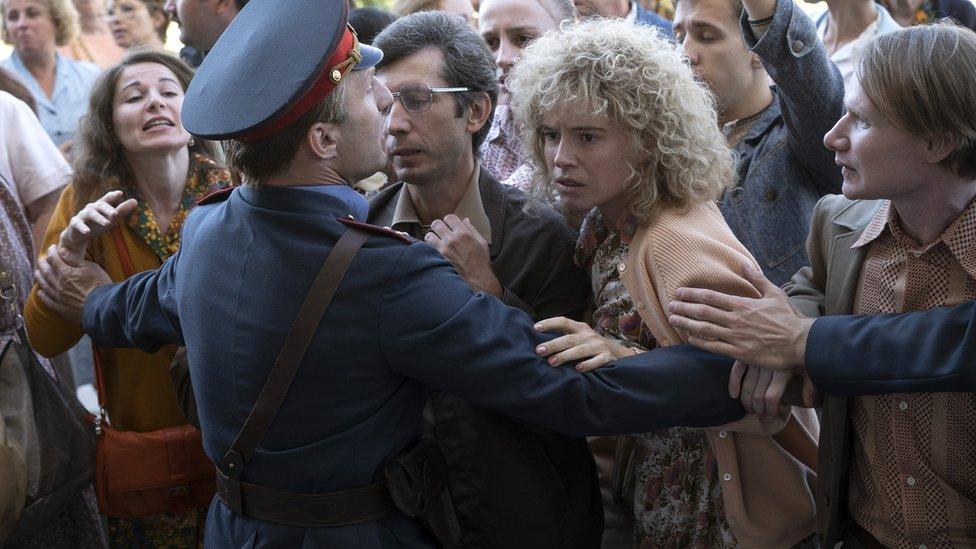
Lyudmilla Ignatenko (Jessie Buckley) is worried about her husband, Vasily, who was one of the first firefighters at the scene

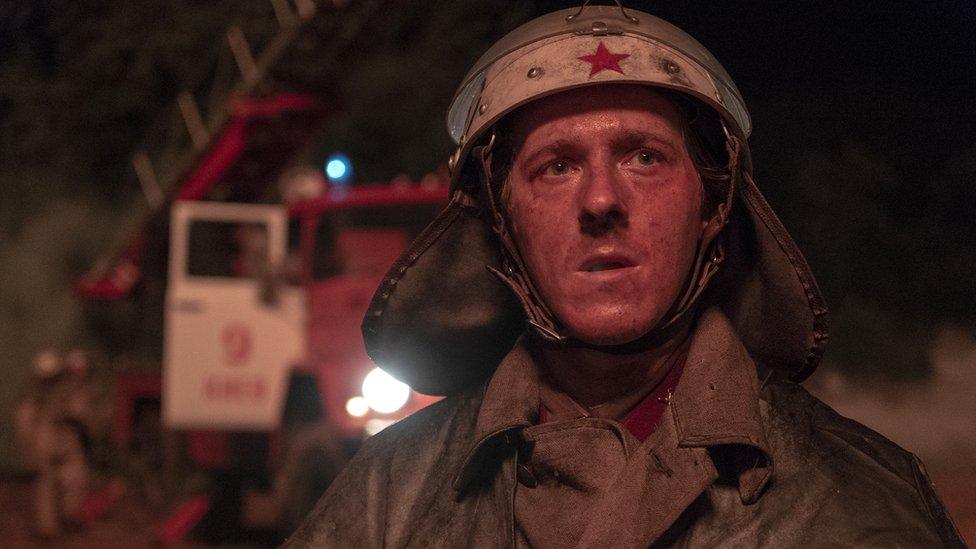
Vasily Ignatenko (Adam Nagaitis) was a newly married firefighter, who died a slow, painful death because of high radiation levels at the site
What follows is an intensely told tale of bureaucratic cover-ups, skin-melting levels of toxic radiation, and a great tragedy that would have taken on apocalyptic proportions if it wasn't for the sacrificial courage of those who wittingly or unwittingly laid down their lives to limit the scale of the disaster.
Knowing what happens makes it hard to watch sometimes.
Seeing the whole town standing on a bridge with children still in their pyjamas watching the fire through a haze of radioactive ash is ghastly. It could become mawkish.
But the pressure-cooker atmosphere of the production, the pacing of the scene changes, and the excellent acting throughout (there are no fake Russian accents) gives us something different, special even: a truly exceptional, important piece of dramatised non-fiction.
Stellan Skarsgård plays Boris Shcherbina, a gruff career politician who starts off toeing a party line based on ignorance and complacency, until he arrives at the scene and sees for himself that Valery Legasov's grave appraisal of the situation is horrifyingly accurate.
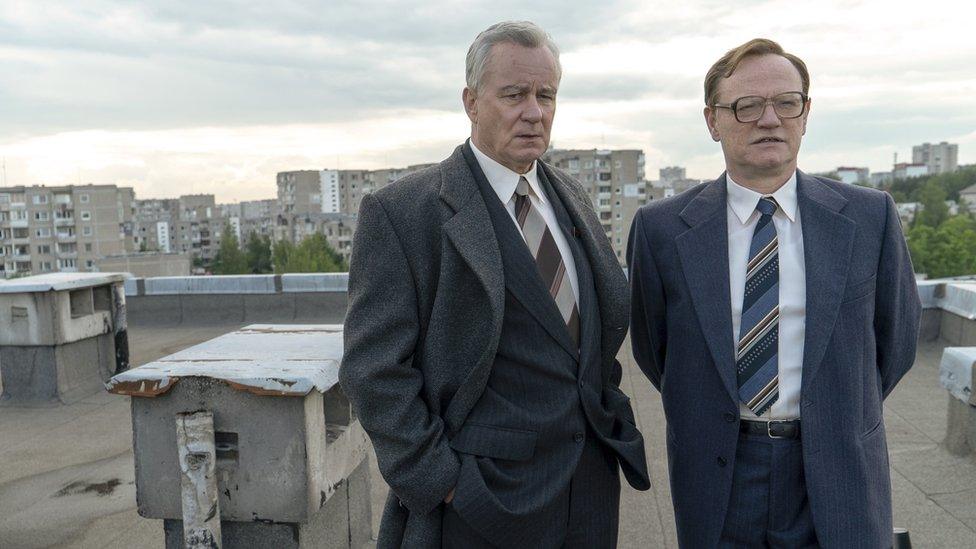
Soviet Deputy Chairman Boris Shcherbina (Stellan Skarsgård) was forced to choose between the state and the facts; here with Valery Legasov (Jared Harris)
Enter Emily Watson, a Belarusian nuclear physicist called Ulyana Khomyuk who grasps the magnitude of what has happened from her office in Minsk before those on the ground have worked out what's going on.
She arrives (uninvited) and offers Legasov advice (unsolicited) on how to navigate the crisis. With him sorted she sets about trying to get to the truth of what caused the accident knowing it must never happen again.
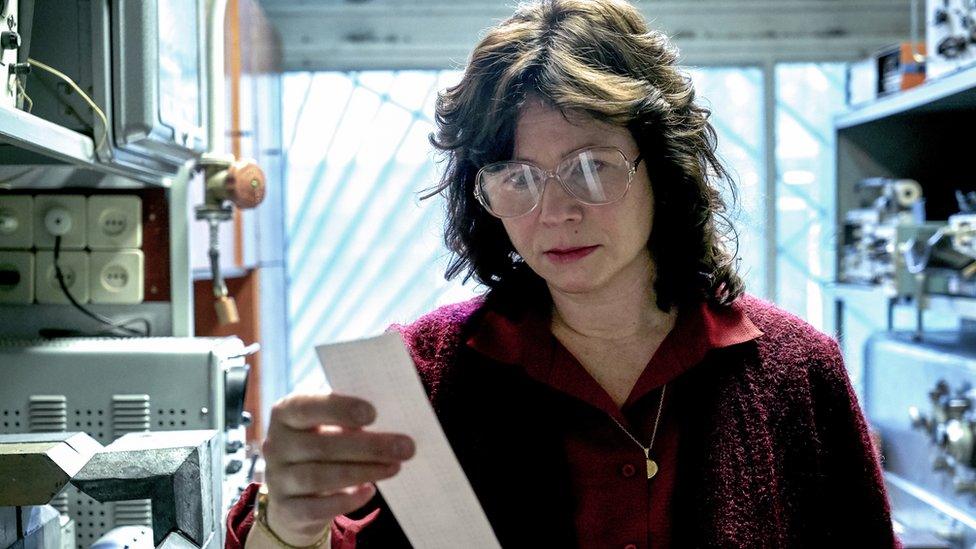
Ulana Khomyuk (Emily Watson) tries to establish how the tragedy happened
All three actors turn in memorable performances, with emotions dialled all the way down to 1980s Soviet levels.
They portray a colourless world, mirrored in Johan Renck's superb direction, which rarely moves beyond a grim green-grey-brown palette.
When I sat down to watch Chernobyl I thought I knew the story.
Now I know I didn't.
Not the way Craig Mazin has described it in his taut and precise scripts. He takes you there, drags you inside, spares you nothing. Not to entertain or titillate, but to make you feel. And to make you think. Think what it must have been like. Think what it might be like if any one of the national governments currently running nuclear reactors start cutting costs and corners.
And therein lies one small irony of this big series. If an equivalent amount of time, trouble, and money had been spent on maintaining and upgrading the Chernobyl Nuclear Power Plant as has been lavished on this series, it might never have been made.
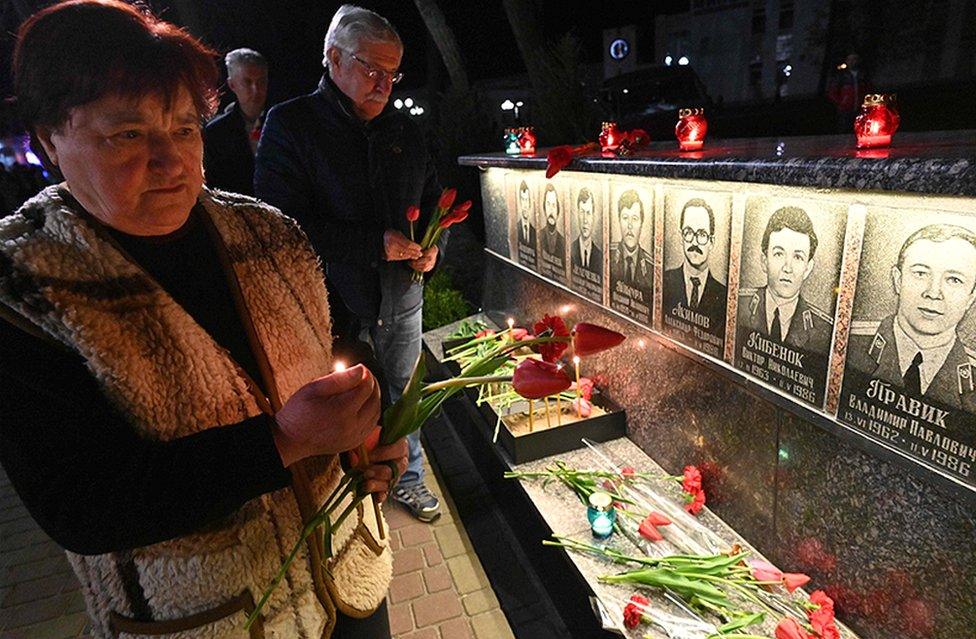
Last month the people of Chernobyl remembered those who lost their lives 33 years ago
